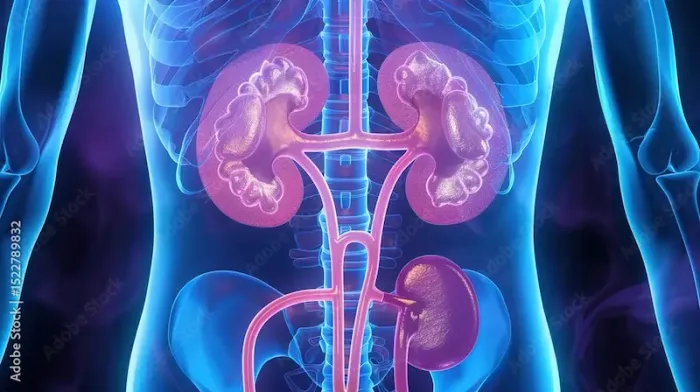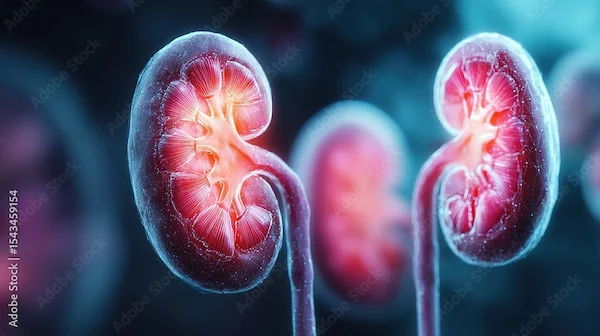Understanding Uremia Symptoms and Treatment Options
Uremia is a serious condition caused by kidney dysfunction, leading to a buildup of waste in the blood. Explore its symptoms, causes, diagnosis, and effective treatment options to manage this condition.


Uremia is a serious medical condition that occurs when your kidneys are no longer able to filter waste products from your blood effectively. This leads to a buildup of toxins in your body, which can cause a range of symptoms and complications. If left untreated, uremia can be life-threatening. However, with proper medical care and lifestyle adjustments, it can be managed effectively.
In this article, we’ll explore what uremia is, its symptoms, causes, and treatment options in simple terms. Whether you or a loved one are dealing with kidney issues, this guide will help you understand uremia better and take the right steps toward better health.
What is Uremia?
Uremia, also called uremic syndrome, happens when your kidneys fail to remove waste products like urea and creatinine from your blood. These toxins build up in your body, leading to various health problems. Uremia is often a sign of advanced kidney disease or kidney failure.
Common Symptoms of Uremia
Uremia affects multiple organs and systems in the body, leading to a variety of symptoms. Some of the most common signs include:
• Fatigue and weakness: Feeling extremely tired even after rest.
• Nausea and vomiting: Loss of appetite and frequent vomiting.
• Swelling (oedema): Especially in the legs, ankles, and feet due to fluid retention.
• Changes in urination: Either urinating too much or too little.
• Confusion or difficulty concentrating: Toxins can affect brain function.
• Muscle cramps and twitching: Due to electrolyte imbalances.
• Itchy skin: Caused by waste buildup in the blood.
• Shortness of breath: Fluid buildup in the lungs can make breathing difficult.
• High blood pressure: Kidney dysfunction often leads to hypertension.
If you or someone you know is experiencing these symptoms, it’s important to consult a doctor immediately. Early diagnosis and treatment can prevent complications.
Consult Top Specialists
What Causes Uremia?
The primary cause of uremia is kidney failure, which can result from:
• Chronic Kidney Disease (CKD): Long-term damage to the kidneys due to diabetes, high blood pressure, or other conditions.
• Acute Kidney Injury (AKI): Sudden kidney failure from severe infections, dehydration, or medication side effects.
• Urinary tract obstructions: Kidney stones or an enlarged prostate blocking urine flow.
• Autoimmune diseases: Conditions like lupus that damage kidney function.
How is Uremia Diagnosed?
Doctors diagnose uremia through:
• Blood tests: To check urea, creatinine, and electrolyte levels.
• Urine tests: To detect protein or blood in urine.
• Imaging tests: Ultrasound or CT scans to examine kidney structure.
• Kidney biopsy: In some cases, a small tissue sample is taken for analysis.
If you suspect kidney problems, booking a kidney function test through Apollo 24|7 can help detect issues early.
Get Kidney Function Test Here
Treatment Options for Uremia
The treatment for uremia depends on its severity and underlying cause. Common approaches include:
1. Dialysis
Dialysis is a procedure that artificially filters waste from your blood when your kidneys can’t. There are two main types:
• Hemodialysis: Blood is filtered through a machine.
• Peritoneal dialysis: Uses the lining of your abdomen to filter blood.
2. Kidney Transplant
For severe kidney failure, a transplant may be the best long-term solution. A healthy kidney from a donor replaces the damaged one.
3. Medications
• Blood pressure drugs: To control hypertension.
• Phosphate binders: To reduce phosphorus levels.
• Erythropoietin (EPO): To treat anaemia caused by kidney disease.
4. Diet and Lifestyle Changes
Managing uremia involves making healthy choices:
• Reduce salt intake: Helps control blood pressure and swelling.
• Limit protein: Too much protein increases waste buildup.
• Stay hydrated: But avoid excess fluid if advised by your doctor.
• Avoid potassium-rich foods: Such as bananas and potatoes, if potassium levels are high.
• Exercise regularly: Helps maintain overall health.
When to See a Doctor?
If you experience persistent fatigue, swelling, nausea, or changes in urination, seek medical help immediately. Early intervention can slow kidney damage and improve quality of life.
Conclusion
Uremia is a serious but manageable condition. By understanding its symptoms, causes, and treatment options, you can take proactive steps to protect your kidney health. If you suspect any kidney-related issues, don’t hesitate to consult a nephrologist or schedule a kidney function test through Apollo 24|7 for expert care.
Remember, early detection and proper treatment can make a big difference in living a healthier life. Would you like to book a consultation or test? Visit Apollo 24|7 today for expert guidance and care.
Consult Top Specialists
Consult Top Specialists

Dr. Mohammed Huzef Ul Arifeen
General Practitioner
3 Years • MBBS
Hyderabad
Apollo 24|7 Clinic - Telangana, Hyderabad

Dr. Anshul Maheshwari
General Practitioner
5 Years • MBBS
Lucknow
Apollo 24|7 Clinic - Uttar Pradesh, Lucknow

Dr Divya Lekha Gunta
General Practitioner
10 Years • MBBS, MD (Pathology)
Visakhapatnam
Apollo 24|7 Clinic - Andhra Pradesh, Visakhapatnam

Dr. Rajib Ghose
General Practitioner
25 Years • MBBS
East Midnapore
VIVEKANANDA SEBA SADAN, East Midnapore

Dr. Shaik Abdul Kalam
General Practitioner
3 Years • MD (Physician)
Visakhapatnam
Apollo 24|7 Clinic - Andhra Pradesh, Visakhapatnam
(100+ Patients)
Consult Top Specialists

Dr. Mohammed Huzef Ul Arifeen
General Practitioner
3 Years • MBBS
Hyderabad
Apollo 24|7 Clinic - Telangana, Hyderabad

Dr. Anshul Maheshwari
General Practitioner
5 Years • MBBS
Lucknow
Apollo 24|7 Clinic - Uttar Pradesh, Lucknow

Dr Divya Lekha Gunta
General Practitioner
10 Years • MBBS, MD (Pathology)
Visakhapatnam
Apollo 24|7 Clinic - Andhra Pradesh, Visakhapatnam

Dr. Rajib Ghose
General Practitioner
25 Years • MBBS
East Midnapore
VIVEKANANDA SEBA SADAN, East Midnapore

Dr. Shaik Abdul Kalam
General Practitioner
3 Years • MD (Physician)
Visakhapatnam
Apollo 24|7 Clinic - Andhra Pradesh, Visakhapatnam
(100+ Patients)


_1.webp)
_5.webp)
.webp)
_9.webp)
